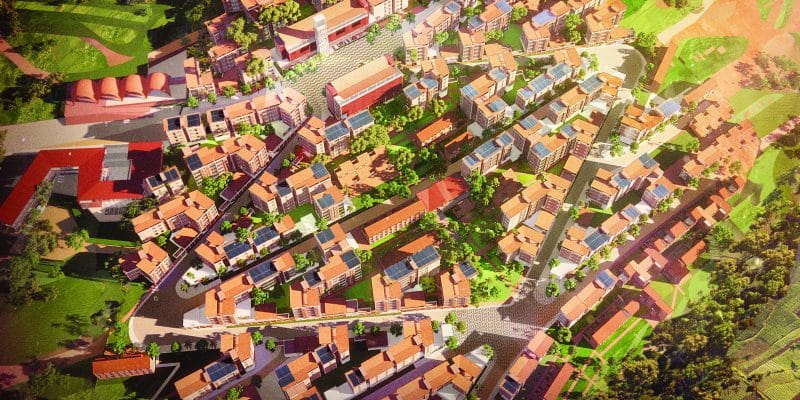The government of Rwanda is launching the pilot phase of the "Green City Kigali" project. Conceived in 2020, but interrupted by Covid-19, the initiative will enable the implementation of sustainable urban infrastructures, including green housing for around 8,000 people in the capital Kigali.
From technologies, electric vehicles, renewable energies, sustainable waste management and urban forests, no ecological dimension escapes the “Green City Kigali”. This green city project covering an area of 620 hectares in the suburb of Kinyinya Hill is entering its pilot phase. It is within this framework that the Green Fund of Rwanda (Fonerwa) has appointed the firm Feilden Clegg Bradley Studios (FCBStudios), to carry out the master plan of Green City Kigali. The UK-based engineering firm will work on part of the 16-hectare site, in partnership with the Royal Institute of British Architects.
The project, worth a total of US$5 billion, is supported by several partners including the German Development Agency (KfW) and the Green Climate Fund (GCF). Green City Kigali will house 1.7 million homes built from local materials and powered by solar energy. These buildings will also be connected to a wastewater and stormwater collection system.
“Rwanda is committed to promoting sustainable cities and the Kigali Green City will demonstrate that it is possible to achieve sustainable urban development on a large scale. It will undoubtedly serve as a catalyst for change, not only in Rwanda, but also in the region,” says Teddy Mugabo, the managing director of the Rwanda Green Fund, which also plans to build commercial and connected office facilities to accommodate “innovative” busines
Read also-RWANDA: Kigali hosts the Global Circular Economy Forum in 2022
Like most East African metropolises, Kigali has been affected by prolonged droughts, coupled with rapid urbanisation and housing shortages. According to the Rwandan authorities, the Green City Kigali project will accelerate sustainable development through the construction of resilient and inclusive infrastructure. “Resource-efficient housing significantly reduces electricity and water bills. The estate will also have biogas plants, integrated craft production centres. Effluent will be treated and reused,” says the Government of Rwanda.
Benoit-Ivan Wansi






